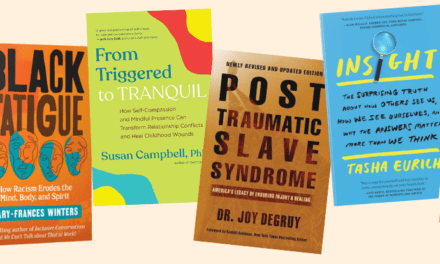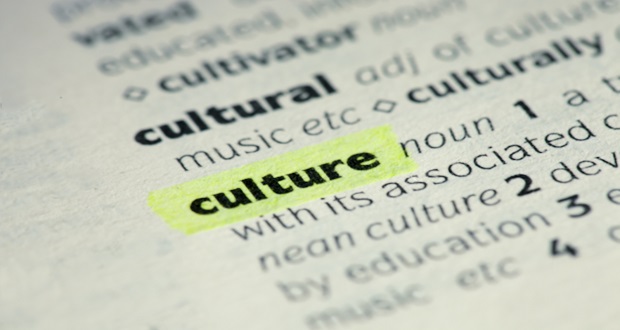“It is a peculiar sensation, this double-consciousness, this sense of always looking at one‘s self through the eyes of others, of measuring one‘s soul by the tape of a world that looks on in amused contempt and pity. One ever feels his two-ness, an American, a Negro; two souls, two thoughts, two unreconciled strivings; two warring ideals in one dark body, whose dogged strength alone keeps it from being torn asunder.”
— W.E.B DuBois
“They say they want you successful, but then they make it stressful / You start keepin‘ up the pace, they start changing up the tempo”
— Mos Def
***
Author’s Note: In an effort to embrace The Winters Group’s mission of reimagining a world, not only centered in Blackness, but one that embraces our cultural and divine art of storytelling, I decided to share pieces of my personal story. In my time doing this work, I’ve had the privilege to meet a lot of folx in DEIJ spaces, but I hope to meet more who may share experiences that are not only similar to my own, but are given space to lead. I invite you to read the above quotes and keep them in mind as you read. It is my hope that it makes some of you think on various ways we can operationalize justice in the workplace and show support to all of those who struggle in their professional journeys to be seen and heard. Finally, to all the Black girls like me, I see you boo. You are worthy of taking up space.
***
Entering the workforce, I was taught by those before me that to survive and succeed I‘d need to sacrifice everything about myself, and only then would I master “professionalism.” I was mentored to mask my personhood and humanity into a small, shallow, tight box that was intentionally designed to suffocate me with white norms. If I conquered that tightrope, if I became the most revered and beloved acrobat of white comfort and obedience, then surely I would be rewarded with “success.”
However, it turned out that no matter how much I worked to change myself in the name of “professionalism,” no matter how many times I straightened my hair, wore black or navy pantsuits, spoke with perfect grammar and enunciation, changed the register of my voice to be perky, airy and “approachable,” it never was enough. I was never enough. Something was always wrong, both when I played the game and when I didn‘t. My hair was too messy, my clothes too big or too short, my make-up too much or not enough, my voice too deep or too aggressive, or I was not speaking up enough. My efforts in either direction were moot because it was a system that was never designed for me to exist within it or be considered in the first place. I liken the experience to playing a wicked game of whack-a-mole; as soon as I adjusted and accounted for one critique, another popped up in an unexpected area that I hadn‘t been aware was “unprofessional.” In an effort to master this “corporate double consciousness” — this two-ness that warred between who I really was and who I was told I needed to be in order to succeed — my spirit, energy and focus have become casualties of workplace warfare on my Blackness.
So many of us in the workplace, but especially Black folx, have learned this same hard lesson: it‘s difficult winning at “professionalism.” Many find themselves having to choose between competence or likeability. Those who are marginalized are seen as one or the other, but not both. This is especially true for Black women.
According to a study done by The Center of Talent Innovation, Black employees are more likely than any other group to experience racialized prejudices at work at an alarming rate of 58%. Non-Black employees of color are not too far behind at 41% and 38% for Latinx and Asian employees, respectively. This raises the question: why is such harm permitted to persist even when organizations claim to have a diverse and inclusive culture? DEIJ work is more than the simple act of “just add water;” you can‘t recruit more non-white employees into your organization or onto your team without taking a critical look at how your current structure creates real-life barriers to inclusion, equity and justice. One way to foster such a critical mindset is to carefully consider how the white supremacist ideal of “professionalism” has contributed, and continues to contribute, to these problematic statistics. While many are effective at playing the “professionalism Olympics,” I‘ve found this to be taxing on my mental health. In an effort to relieve myself from stress, I have decided to challenge these norms upfront.
DEIJ work is more than 'just add water;' you can't recruit more non-white employees into your org or onto your team without taking a critical look at how your current structure creates real-life barriers to inclusion, equity and… Share on XAfter a while, in an effort to prioritize my mental health, I made a conscious choice to stop trying to win at the “professionalism Olympics” and instead began showing up in the workplace as myself. And by doing so I began the healing process. But there were also unspoken (and sometimes spoken) consequences. A fat, tall, plus-size Black woman whose laugh is as loud and rich as the colors in her wardrobe wasn‘t enough — despite the organizations begging employees to “show up as their authentic selves” in their DEIJ campaigns and emails. As my truest self, I was still a workplace contradiction; still competent, but not the image of a leader, nor worthy to be included.
As my truest self, I was still a workplace contradiction; still competent, but not the image of a leader nor worthy to be included. Share on X
A first-generation Black girl, born in one the Blackest cities in the nation, whose parents graduated from poor to working class at just the right time, whose voice sounded more like a gumbo of soul, hip-hop and blues rather than a perfect soup of quirky pop-music was still not enough, and too much at the same time. It was ok if I was Black but not that type of Black. That was too Black. Too “hood.” Too “urban.” Unsafe, unrefined and unprofessional — the antithesis of a “culture fit.” And to be honest, I still struggle because I, too, have been conditioned by white supremacy to constantly remember that I, just as I am, am not the right type of Black to be worthy of protection and inclusion in the workplace. I‘m doing too much and not enough all at the same time. The neuroses it all induces is exhausting. No matter the degrees and accolades from the shiny schools, the proven competency, the perfect attendance, or the expertise that evidenced the contrary, I was still not considered a “professional.”
From there, I began challenging these norms and sharing my concerns at the intake stages of my interviews and all interactions moving forward. I decided to question the systems and policies in place that allow harassment and microaggressions to go unchecked and claims of workplace inclusion to simply be stated without any action. I began “managing up” by teaching my managers and supervisors, from the very beginning of our relationship, the concerns I had with professionalism and how the blind adherence to it was a barrier for those like me. I challenged them to use their proximity to whiteness and power to make a concerted and concentrated effort to create change.
I began 'managing up' by teaching my managers and supervisors the concerns I had with professionalism. I challenged them to use their proximity to whiteness and power to make a concerted and concentrated effort to create change. Share on X
Managers must be responsible for fostering an environment where everyone can be safe to show up as themselves, without the threat of being seen as “unprofessional.” As you seek to create a supportive climate for BIPOC, it‘s crucial to reflect on how written and unwritten standards of professionalism can be getting in your own way.
As you strive toward operationalizing justice, I offer the following points of reflection:
- Professionalism comes in different shapes, sizes and colors. How are you and the organization defining professional? Think about what you have been taught to perceive as “professional” in terms of an individual‘s name, appearance, speech and attire. Consider the way in which white supremacy has influenced how individuals and organizations have come to define what is and is not considered to be professional. Also ask yourself, what are the shared characteristics of those who are promoted within your organization and those who are not, and work to change that.
- What have you learned about Black hair and hair styles as they relate to professionalism? Consider policies such as the CROWN Act, and why they are important. Ask yourself how you can support and implement similar policies for your employees who may be most affected by a lack of protective policies in your workplace.
- If your workplace enforces a dress code, in what ways does this dress code enforce harmful restrictions that leave BlPOC employees vulnerable and excluded? Give thought to the cultural-specific styles of dress which are most likely to be targeted by such dress codes, and think of the best ways in which you personally might mitigate any potential harm in this regard. Ask yourself whether or not the dress code is truly necessary to the larger success of the organization and take steps to eradicate harmful dress codes entirely.
- Who in your organization is allowed space to speak directly and be seen as assertive, versus who is seen as aggressive and criticized when they bring up matters of concern or offer critiques? Make it a practice to actively observe the dynamics of who is genuinely permitted the most license to “speak freely” within your organization. Note whether it is the actual content of the criticism that is repeatedly seen as a problem, or if it is simply the source of the criticism.
- Who on your team is receiving critique on their clothing choices and who is not? Seek to identify when there are discrepancies in the critiques based on the target of said critiques. Pay close attention to who is most frequently making complaints of this nature, and be prepared to step in and speak out against critiques that come from a place of prejudice and bias.
The construct of professionalism is less about the people and more about control over the “other.” Striving to reshape a world where cultural and racial markers of subordinated identities are no longer considered a liability to career goals is of utmost importance when working towards operationalizing justice in the workplace. Managers and supervisors who are entrusted to lead and develop BIPOC talent are on the frontlines of this mission. Understanding diversity is easy; however, inclusion and belonging is challenging and requires you to dig past deeply-ingrained biased, but it can be done.
The construct of professionalism is less about the people and more about control over the 'other.' Share on XBecause your employees and team members are professionals at their work, their full expression of self and their cultural identities are also professional. Full stop. If you build it, they will come. If it‘s inclusive, they will stay.



















